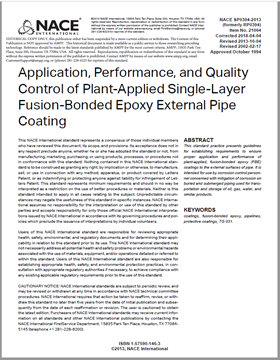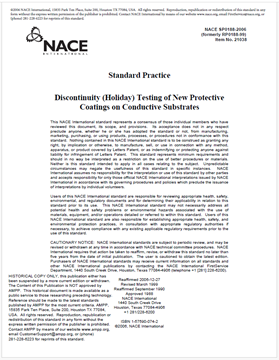Search
TM0186-1989, Holiday Detection of Internal Tubing Coatings of 10 to 30 Mils (0.25 to 0.76 mm) Dry Film Thickness
Also Purchased
SP0394-2013 (formerly RP0394), "Application, Performance, and Quality Control of Plant-Applied Single Layer Fusion-Bonded Epoxy External Pipe Coating”
Product Number:
21064-SG
Publication Date:
2013
$179.00
SP0196-2015 (formerly RP0196), “Galvanic Anode Cathodic Protection of Internal Submerged Surfaces of Steel Water Storage Tanks”
Product Number:
21077-SG
ISBN:
1-57590-189-7
Publication Date:
2015
$179.00
NACE SP0188-2006 (formerly RP0188), Discontinuity (Holiday) Testing of New Protective Coatings on Conductive Substrates
Product Number:
21038-SG
Publication Date:
2006
$179.00




